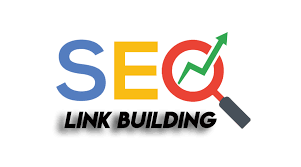Unleashing the Potential: SEO and SEA Strategies for Digital Success
The Power of SEO and SEA in Digital Marketing
Search Engine Optimization (SEO) and Search Engine Advertising (SEA) are two vital components of digital marketing that can significantly impact a company’s online visibility and success. While both strategies focus on improving a website’s search engine rankings, they differ in their approaches and execution.
SEO: Enhancing Organic Visibility
SEO involves optimizing a website’s content, structure, and back-end coding to improve its organic search engine rankings. By targeting relevant keywords, creating high-quality content, and building authoritative backlinks, SEO helps websites rank higher in search engine results pages (SERPs) naturally. This leads to increased organic traffic, brand credibility, and long-term sustainability.
Key elements of SEO include on-page optimization (meta tags, headings, keyword placement), off-page optimization (link building, social media signals), technical SEO (site speed, mobile-friendliness), and local SEO (Google My Business listing, local citations).
SEA: Driving Immediate Results through Paid Advertising
SEA, on the other hand, involves paid advertising campaigns on search engines like Google Ads or Bing Ads. With SEA, businesses bid on keywords relevant to their products or services to display ads at the top of search results. These ads are marked as ‘sponsored’ and appear above organic listings. SEA offers immediate visibility and allows businesses to target specific audiences based on demographics, interests, or browsing behaviour.
Key elements of SEA include keyword research, ad copy creation, bid management, landing page optimization, A/B testing, and performance tracking through metrics like click-through rate (CTR), conversion rate (CVR), and return on ad spend (ROAS).
The Synergy Between SEO and SEA
While SEO focuses on long-term organic growth and brand authority building, SEA delivers instant visibility and targeted traffic. When combined strategically as part of a holistic digital marketing strategy, SEO and SEA can amplify results synergistically.
For example:
- Cross-channel synergy: Using insights from SEA campaigns to inform SEO keyword targeting.
- Remarketing: Reaching users who visited your site through organic search with targeted ads via retargeting campaigns.
- A/B testing: Testing ad copy effectiveness in SEA campaigns can inform content strategies for organic listings.
- Data sharing: Utilizing data from both channels to gain a comprehensive understanding of user behaviour for better decision-making.
In Conclusion
In today’s competitive digital landscape, leveraging the power of both SEO and SEA is essential for businesses looking to maximise their online presence and drive measurable results. By understanding the unique strengths of each strategy and integrating them effectively into your digital marketing efforts, you can create a robust online presence that attracts quality traffic and converts leads into customers.
Mastering SEO and SEA: 8 Essential Tips for Boosting Your Online Presence
- SEO
- 1. Conduct keyword research to identify relevant terms for your website.
- 2. Optimise your website’s meta tags, headings, and content with targeted keywords.
- 4. Build backlinks from reputable websites to improve your site’s authority.
- SEA
- 1. Set clear goals and budget for your search engine advertising campaigns.
- 2. Use relevant keywords in your ad copy to attract the right audience.
- 3. Test different ad variations to see which ones perform best.
SEO
Search Engine Optimization (SEO) is a fundamental aspect of digital marketing that focuses on enhancing a website’s organic visibility in search engine results. By strategically incorporating relevant keywords, creating high-quality content, and building authoritative backlinks, SEO aims to improve a website’s ranking position naturally. This process not only increases organic traffic but also boosts brand credibility and establishes long-term sustainability for businesses online.
1. Conduct keyword research to identify relevant terms for your website.
To enhance your online visibility and attract targeted traffic, it is crucial to conduct thorough keyword research to identify relevant terms for your website. By understanding the search terms that your potential customers are using, you can strategically incorporate these keywords into your SEO and SEA campaigns. This approach not only helps improve your website’s organic rankings but also enables you to create compelling ad copy that resonates with your target audience in paid advertising. Effective keyword research forms the foundation of a successful digital marketing strategy, allowing you to align your content with user intent and drive meaningful engagement with your brand.
2. Optimise your website’s meta tags, headings, and content with targeted keywords.
To enhance your website’s search engine visibility and drive targeted traffic, it is crucial to optimise key elements such as meta tags, headings, and content with relevant keywords. By strategically incorporating targeted keywords into your meta tags and headings, you can signal to search engines the relevance of your content to user queries. Additionally, crafting high-quality and keyword-rich content not only improves your site’s ranking potential but also enhances user experience by providing valuable information that aligns with search intent. This proactive approach to SEO and SEA integration can help boost your website’s organic rankings and increase the effectiveness of paid advertising campaigns, ultimately leading to improved online visibility and engagement.
4. Build backlinks from reputable websites to improve your site’s authority.
Building backlinks from reputable websites is a crucial tip in SEO and SEA strategies. By acquiring links from high-quality and authoritative sites, you not only enhance your website’s credibility but also signal to search engines that your content is valuable and trustworthy. These backlinks act as a vote of confidence for your site, boosting its authority and improving its chances of ranking higher in search engine results pages. Incorporating this practice into your digital marketing efforts can have a significant impact on enhancing your online visibility and attracting more qualified traffic to your website.
SEA
Search Engine Advertising (SEA) is a powerful digital marketing strategy that involves paid advertising on search engines to enhance online visibility and drive immediate results. By strategically bidding on relevant keywords and crafting compelling ad copy, businesses can secure top ad placements in search engine results pages, reaching targeted audiences efficiently. SEA provides businesses with a direct pathway to increase website traffic, generate leads, and boost conversions through precise targeting and real-time performance tracking.
1. Set clear goals and budget for your search engine advertising campaigns.
Setting clear goals and establishing a well-defined budget for your search engine advertising campaigns are crucial steps in ensuring the success of your digital marketing efforts. By outlining specific objectives, such as increasing website traffic, generating leads, or boosting sales, you can tailor your SEA strategies to align with these goals effectively. Moreover, having a predetermined budget helps you allocate resources efficiently, monitor campaign performance, and make informed decisions to maximise ROI. Clear goals and a defined budget provide a solid foundation for driving targeted traffic and achieving measurable results through your search engine advertising initiatives.
2. Use relevant keywords in your ad copy to attract the right audience.
Utilising relevant keywords in your ad copy is a crucial tip in both SEO and SEA strategies. By incorporating specific keywords that resonate with your target audience, you can effectively capture the attention of potential customers who are actively searching for products or services like yours. This practice not only enhances the visibility of your ads but also ensures that they are displayed to the right audience, increasing the likelihood of driving qualified traffic to your website. Remember, choosing the right keywords and integrating them seamlessly into your ad copy can significantly impact the success of your digital marketing campaigns.
3. Test different ad variations to see which ones perform best.
To enhance the effectiveness of your digital marketing campaigns, it is crucial to test different ad variations to identify the most successful ones. By conducting A/B testing on your search engine advertising (SEA) campaigns, you can compare various ad copies, visuals, and call-to-action messages to determine which resonates best with your target audience. This data-driven approach allows you to refine your strategies, improve click-through rates, and ultimately maximise the performance of your ads in driving conversions and achieving your marketing objectives.







